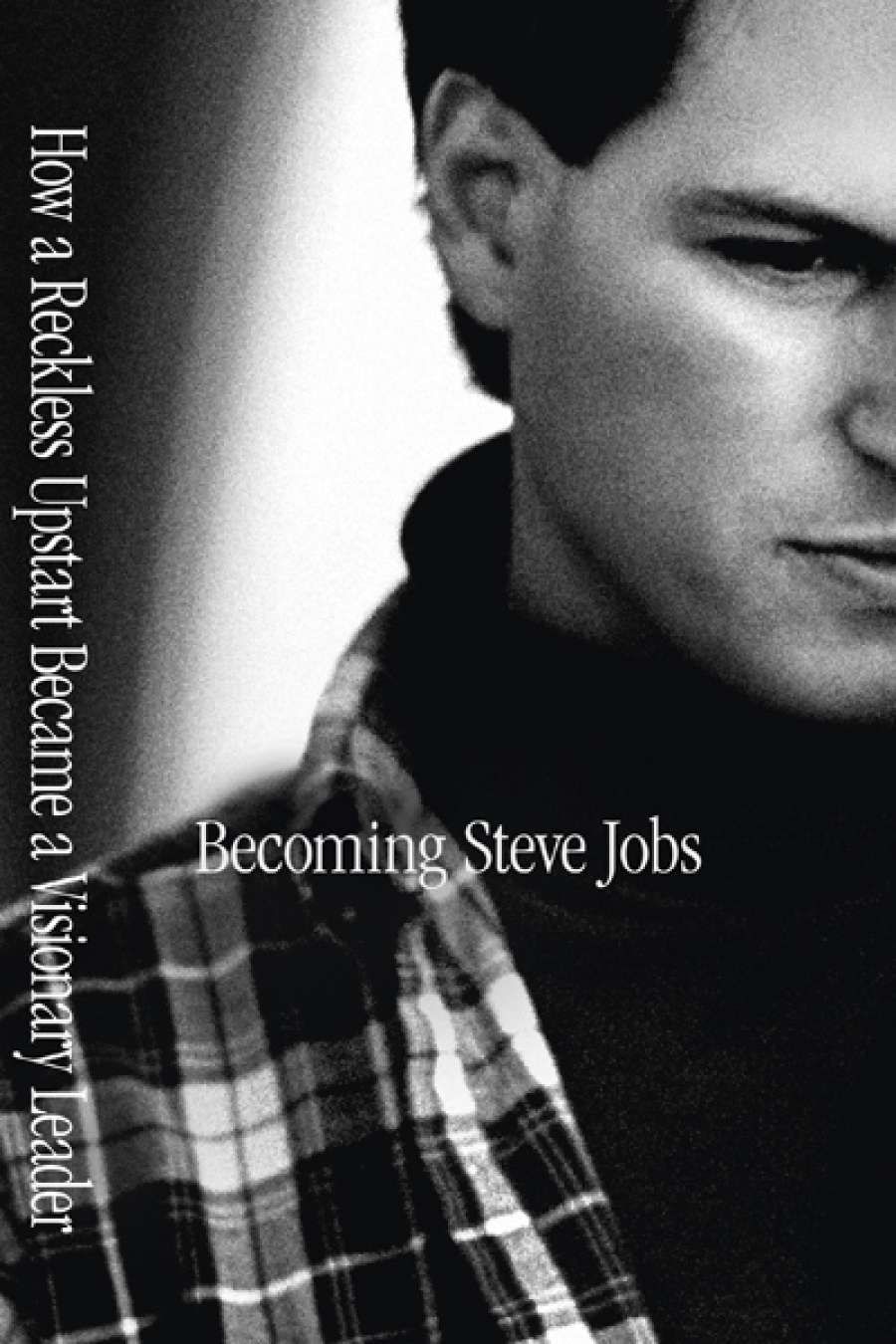
- Free Article: No
- Contents Category: Media
- Custom Article Title: Joel Deane reviews 'Becoming Steve Jobs' by Brent Schlender and Rick Tetzeli
- Book 1 Title: Becoming Steve Jobs
- Book 1 Subtitle: How a reckless upstart became a visionary leader
- Book 1 Biblio: Hachette, $35 pb, 455 pp, 9781444761993
The second coming of Steve Jobs of Apple has spawned a mini-industry. Business books that promise to help you ‘think different’ (an Apple slogan) are literary landfill.
Becoming Steve Jobs, on the other hand, is not landfill. It is something much more complicated and remarkable. What is remarkable occurs on page 392. Tim Cook, the man Jobs anointed as his successor as chief executive officer of Apple before his death from cancer, is quoted critiquing his old boss’s official biography.
Steve Jobs (2011) was written by Walter Isaacson with the cooperation of the Jobs family and members of Apple’s inner circle and published a few weeks after the death of Silicon Valley’s greatest salesman. Exhaustively reported and somewhat tediously written, Steve Jobs dutifully told the saga of Steve without shying away from the dark side of his personality. To name a few Job idiosyncrasies, the reader found out all about his profane tirades, petulant liking for leaving his car in disabled parking spaces, and his refusal for years to admit paternity of a daughter. In short, Jobs came across as a genius of a businessman with a monster truck for an ego.
Speaking to the co-authors of Becoming Steve Jobs – Brent Schlender and Rick Tetzeli – Cook railed against Isaacson:
I thought the Isaacson book did him a tremendous disservice. It was just a rehash of a bunch of stuff that had already been written, and focused on small parts of his personality. You get the feeling that [Steve’s] a greedy, selfish egomaniac. It didn’t capture the person … He wasn’t a saint. None of us are. But it’s emphatically untrue that he wasn’t a great human being.
Once Becoming Steve Jobs was published, several Apple glitterati – including the company’s head designer, Jonathan Ive – also sank the boots into Isaacson while extolling the virtues of Schlender and Tetzeli’s book.
‘Becoming Steve Jobs, on the other hand, is not landfill. It is something much more complicated and remarkable’
Given the hazing of Isaacson and the decision by Apple to push Becoming Steve Jobs through its stores, I was as sceptical of this latest Jobs book as I was of the messiah’s second coming to Cupertino. Would it be a hagiography? What I found was far more complicated.
 Steve Jobs (photograph by Matthew Yohe via Wikimedia Commons)
Steve Jobs (photograph by Matthew Yohe via Wikimedia Commons)
Becoming Steve Jobs is a better book than the Isaacson biography, but it is also compromised. Schlender – a former journalist with the Wall Street Journal and Fortune magazine – had a professional relationship, verging on friendship, with Jobs dating back to the 1980s. He knew Jobs before his second coming, back when he was seen as the road kill of Microsoft founder Bill Gates, a contemporary and competitor.
Writing in Schendler’s voice for simplicity, the authors explain in their prologue that much of the posthumous coverage of Jobs was stereotypical – painting Jobs as ‘half genius, half asshole’. ‘None of this gibed with my experience of Steve,’ Schendler writes, ‘who always seemed more complex, more human, more sentimental and even more intelligent than I read about elsewhere.’
Becoming Steve Jobs then sets out to track the evolution of the arrogant 1.0 version of Steve who was drummed out of Apple in the 1980s to the less arrogant 2.0 version of Steve who turned Apple into a behemoth. The story is told with more verve and nuance than the Isaacson biography, and has much to offer would-be corporate titans.
Jobs is presented as a man of immense intelligence, warmth, and charm. It is impossible to not feel for his children during his fatal illness. Jobs is undoubtedly a great businessman. But is he, as Cook contends, a ‘great human being’? Judging by the evidence in the Isaacson biography and the Schlender–Tetzeli character study, I have to disagree with his acolytes at Apple. Steve Jobs was a genius and an arsehole.


Comments powered by CComment